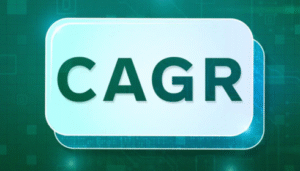1. What is freelancing?
Freelancing is an activity where people work for various clients instead of being an employee to a single company. Freelancers are usually working remotely or on-site for their clients, depending on the type of work they have to offer.
2. Why should I start a freelance business?
Freelancing gives you the flexibility to choose your projects, clients, and schedule. It also gives you the opportunity to earn more, gain personal satisfaction, and be independent in your work, along with the opportunity to build a better work-life balance.
3. What skills do I need to become a freelancer?
Essential skills for freelancing include strong communication, time management, self-discipline, and expertise in the field you’re offering services in. Whether it’s writing, graphic design, marketing, web development, or consulting, developing proficiency in your chosen profession is key.
4. How do I determine which freelance services to offer?
Identify what you’re skilled at and passionate about. Reflect on the demand in the market, your value proposition, and problems you can solve for clients. Research competition in your chosen field to ensure that there is a chance for your skills.
5. How do I set freelance rates?
Freelance rates are usually set by considering factors like experience, industry standards, client budget, and project complexity. Research typical industry rates and adjust based on your skills and the value you’re offering.
6. What are the advantages of freelancing?
The benefits of freelancing include flexibility in terms of work hours, the ability to choose your projects and clients, potentially higher earnings, and being your own boss. It offers opportunities for personal growth and global networking.
7. What are the challenges of freelancing?
Major issues freelancers face would be inconsistent income, no guarantee of employment, sourcing and retaining clients, managing administrative tasks, and self-motivation. Balancing multiple roles is also quite hectic; for instance, marketing your business, finances, and many other administrative issues.
8. How do I find clients as a freelancer?
Clients can be found through networking, joining freelance platforms (like Upwork or Fiverr), using social media for marketing, attending industry events, and contacting potential leads through cold emails. Referrals and word-of-mouth are very strong tools as well.
9. What is a freelance portfolio and why is it important?
Freelance portfolios show clients, on paper and visually, the work you have done so far. It is an important tool since it visually provides your experience, skills, and past successes, fostering credibility and trust from potential customers.
10. Do I need to get a business license while working as a freelancer?
Whether you need a business license or not depends on where you are and what you do. Some areas require freelancers to have a business license, while others don’t. Check your local regulations to know your legal requirements.
11. How do I market my freelance services?
Market your freelance business by building an online presence, networking with potential clients, using content marketing, blogging or social media, relevant events or conferences, and use job boards and freelance websites.
12. Do I need a website for my freelance business?
It provides a professional web presence, thereby gaining credibility, while giving easy access to potential clients about your services, portfolio, and contact information. It acts as a marketing tool that can act as your digital business card.
13. How do I write a freelance contract?
A freelance contract should clearly mention project scope, timeline, payment terms, deliverables, intellectual property rights, and confidentiality agreement. This protects you and your client from misunderstandings or legal disputes.
14. What’s the right way to handle taxes as a freelancer?
The freelancing entrepreneur needs to tend to his or her taxes, such as income tax and self-employment tax. Keep track of every expense, pay money into taxes, and even consider an accountant to help one’s business be compliant and maintain maximum deductions.
15. Should I use an accountant for my freelance business?
Although it is not necessary, hiring an accountant or using accounting software will help simplify tax filing, expense tracking, and financial management. An expert can help you comply with tax laws and find ways to minimize your tax burden.
16. How do I stay organized as a freelancer?
You can use tools such as project management software (Trello, Asana), time tracking apps, cloud storage, and a routine to stay on top of deadlines and client communication. Organization is important for efficiency and multiple clients.
17. Does a freelancer need to work from home?
Yes, most freelancers work from home, but you can also work from co-working spaces or cafes. A dedicated workspace may improve productivity, reduce distractions, and help establish professionalism.
18. How do I set boundaries with clients over work?
Work boundaries setting includes defining your working hours, the preferred method of communication, and expected response times at the onset. Professionalism should be maintained to make sure that clients respect your time and avoid burnout.
19. How do you deal with clients who don’t pay?
In case a client refuses to pay or delays his payment, make a follow-up in a soft but firm manner reminding him of the terms agreed on in your contract. Sometimes you may have to take legal recourse or mediation.
20. Freelance full-time or part-time?
It depends on your existing situation. However, freelancing full-time opens more doors for work and higher revenues but may go with the struggle of inconsistent returns. Starting with part-time ensures that you’ll get used to it while continuing to have that job security on the side.
21. What should I do if the workload is very heavy?
If overwhelmed, delegate or outsource tasks, streamline processes and evaluate your project load. Be realistic with deadlines, and let them know about changes in the timeline or deliverables.
22. Specialize in a particular niche for a freelancer?
With specialty expertise comes the ability to stand out. You attract valuable clients and will be known by your area of expertise. There you also make yourself more productive, provide much better quality in your work, and command bigger rates.
23. How to improve my freelance skills?
You can enhance your skills through self-learning, free online courses or certifications, webinars, and most importantly, catching up with any industry trends, practicing your art regularly, seeking feedback, learning from mistakes to refine and boost your skills and abilities.
24. Can someone work as freelancer without experience
While prior experience can help, many freelancers start with little experience. You can build experience by offering discounted services, creating sample work, or working with friends and family to build your portfolio and credibility.
25. How do I handle multiple clients at once?
Effective time management and organization are key to juggling multiple clients. Use project management tools to track deadlines, create detailed schedules, and communicate proactively with clients to avoid missed deadlines or misunderstandings.
26. How do I handle client feedback and revisions?
Be open to feedback and revisions. That is all part of the creative process. Clearly define the number of revisions within your fee before beginning work. Keep communication professional and constructive when approaching the solution.
27. How do I compete in this highly competitive freelance marketplace?
Develop a USP, provide great customer service, ensure quality work always, and network to get in touch with people. Establishing a solid online presence and being dependable will separate you from others.
28. What software should a freelancer have?
Depending on your service offering, you might need project management tools (Trello, Asana), time-tracking tools (Harvest, Toggl), design software (Adobe Creative Cloud), communication platforms (Slack, Zoom), and accounting tools (QuickBooks).
29. How do I handle freelancing during slow seasons?
Plan to expand your client base during slow periods, enhance your marketing techniques, acquire new expertise, or even start new services. There will also be an economic padding for dull months to weather the downtime.
30. Should I bill my clients by package or hourly?
Both pricing models have their advantages. Hourly rates are suitable for tasks with an unclear scope, while packaged services are ideal for defined, repeatable services. Choose a model that suits the type of services you offer and the preferences of your clients.
31. How do I protect my intellectual property as a freelancer?
Include terms for ownership of intellectual property in your contract. In most cases, clients may want full ownership of the deliverables, but you can negotiate specific terms for retaining rights or providing licensing agreements as appropriate.
32. Do I need insurance as a freelancer?
Depending on the type of work you do, having insurance like professional liability or general liability insurance can protect you from legal and financial risks associated with mistakes, accidents, or client disputes.
33. How do I handle burnout as a freelancer?
Take regular breaks, establish work-life boundaries, and make time for personal hobbies or activities to avoid burnout. Listen to your body and mind when they signal that you need rest and do not be afraid to delegate or reduce your workload if necessary.
34. Can I switch freelance careers or offer multiple services?
Yes, you can pivot to different freelance niches or offer multiple services, but ensure each is aligned with your skill set and the market demand. Consider client needs, but don’t overwhelm yourself by offering too many services without full commitment.
35. How do I balance work and personal life as a freelancer?
Set fixed working hours, establish a work area, and ensure you have some time to rest. Establishing boundaries between personal time and work hours is crucial in maintaining mental health and healthy work-life balance.
36. Should I continue freelancing if I am not earning enough?
If freelancing isn’t generating the financial returns you are seeking, consider reviewing your pricing, client targeting, and marketing strategies. You may have to make changes, hone in on a specific niche, or develop other income streams to create long-term financial security.
37. Is freelancing a viable career for the long term?
Yes, freelancing can absolutely become a long-term, sustainable career. With a strong client base, continued learning, networking, and sound business practices, freelancing can provide a fulfilling and stable career for many years.
38. How do I handle international clients as a freelancer?
It might also involve understanding the different time zones, cultural differences, and global payment methods. The clarity of communication and setting a global rate according to the location of the client can ensure that the collaboration goes smoothly.
39. How do I manage unpaid invoices?
First send a polite reminder to unpaid invoices. In case payment does not arrive, move on to the second notice or invoicing software tracking overdue bills. In extreme cases, seek legal assistance when the payments take long to be paid.
40. What are some common mistakes that should be avoided by a freelancer?
Avoid underpricing services, not keeping a professional web presence, and forgetting contracts or taking on too much work as well as forgetting to track finances. All these will set you for success in the freelance career after knowing the most common mistakes done by freelancers.
Conclusion: Starting a freelance business presents wonders of flexibility and opportunity but requires hard work and smart planning. By asking the right questions, setting clear goals, and equipping yourself with the knowledge and tools needed to navigate challenges, you can pave the way to freelance success!










Spinwinpkgame, yaar! Just downloaded. Seems legit and fun. My first few spins were pretty lucky, hope it stays that way! Check it out here spinwinpkgame.